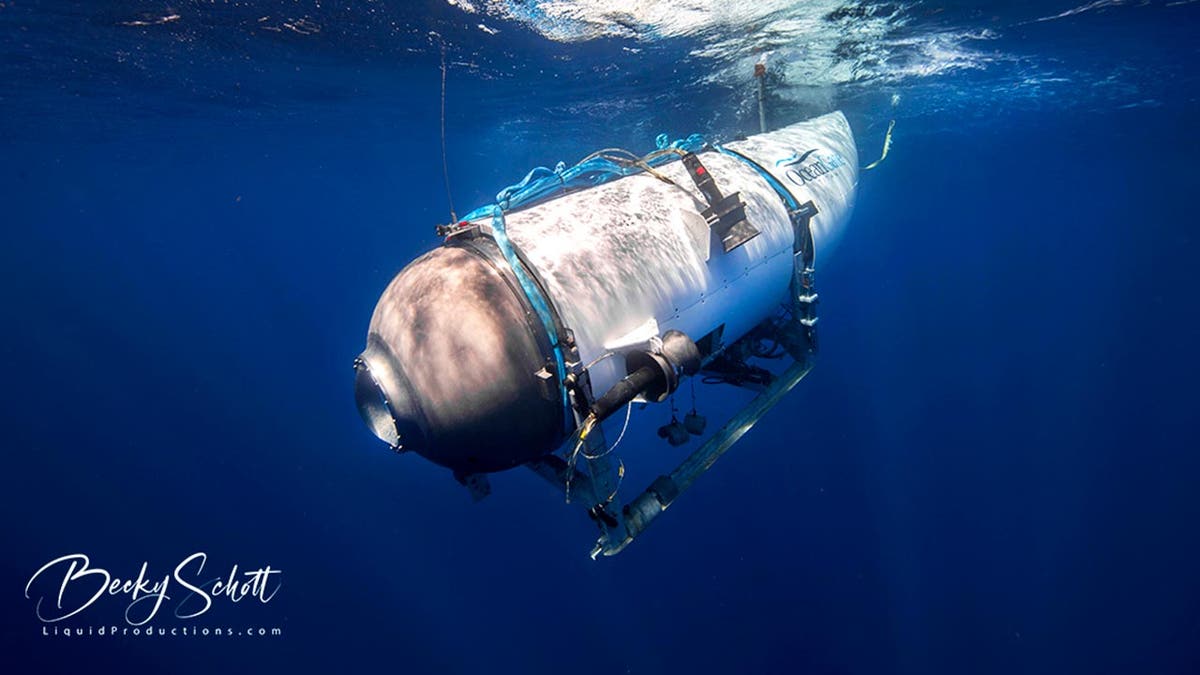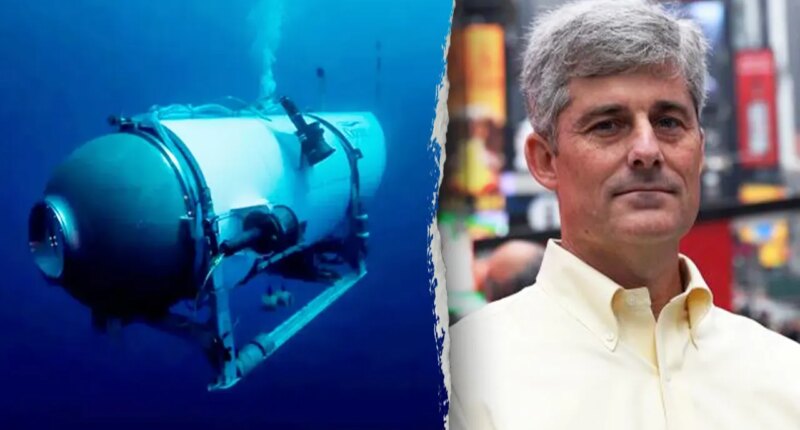Share this @internewscast.com
A revealing new investigation into the Titan submersible disaster, which resulted in the loss of five lives, has concluded that the tragedy could have been averted. The catastrophe stemmed from a flawed experimental design and neglected safety warnings, specifically implicating OceanGate CEO Stockton Rush.
This 335-page report by the U.S. Coast Guard (USCG) represents the first comprehensive governmental analysis of the incident and is the initial official document to assign responsibility to OceanGate, the now-disbanded operators of the doomed submersible, and Rush.
The report characterizes Rush as the mastermind responsible for the submersible’s failure, as he disregarded engineers’ alerts concerning the vessel’s defective design. This negligence led to the vessel’s implosion near the Titanic wreckage in the North Atlantic Ocean in 2023, causing the immediate deaths of all five individuals on board.
The report states, “Titan’s carbon fiber hull design and construction, specifically the winding, curing, gluing, hull thickness, and manufacturing standards, introduced weaknesses that compromised the Titan hull’s structural integrity.” It further explains that “The carbon fiber pressure hull fully collapsed due to buckling during its final dive.”
The report uncovered that despite previous dives raising several warnings, Rush persisted in operating Titan, ignoring internal alerts and keeping significant damage hidden from both crew and clients.
For example, during a 2019 dive, over 150 loud hull-cracking sounds were detected, indicating progressive deterioration. A significant four-foot crack was eventually discovered in the original hull, which was downgraded following pressure tests, leading OceanGate to construct a new hull. Nonetheless, four one-third scale models tested during development all imploded under pressure, further proving the innate instability of the carbon fiber design.
Additionally, the forward dome of the Titan — a 3,500-pound pressure-bearing component — was designed to be secured with 18 bolts, but Rush only used four bolts, according to testimony from OceanGate’s director of engineering at the time.
During a 2021 Titanic dive, Titan’s four securing bolts sheared off while being hoisted aboard the Horizon Arctic, causing the forward dome to detach and fall onto the Launch and Recovery System platform in a catastrophic mechanical failure that narrowly avoided injuring the crew.
The report found OceanGate bypassed industry-standard certification, ignored its own Health, Safety, and Environmental (HSE) manual and fostered a culture that suppressed safety concerns.

Stockton Rush poses at Times Square in New York City on April 12, 2017. (REUTERS/Shannon Stapleton)
“Had OceanGate adhered to the safety standards outlined in its own HSE Manual and fostered a culture of transparency and accountability, this tragedy would likely have been averted with the final Titan hull removed from service well ahead of its implosion,” the report states.
“Encouraging employees to voice concerns without fear of retaliation and prioritizing safety over expediency could have prevented the sequence of events that led to the disaster. Instead, the company’s systemic failures created an environment where risks were ignored, and consequences were inevitable.”
Along with Rush, U.K. billionaire Hamish Harding, French mariner Paul-Henri Nargeolet and father-son pair Shahzada Dawood and Suleman Dawood also perished in the disaster.
While the passengers signed waivers, they were not fully informed of the degree of experimental engineering involved or prior red flags, according to the report.

The Titan submersible in the Bahamas in May 2018. The Titan imploded during a mission to view the Titanic on Monday, June 19, 2023. (Becky Kagan Schott)
Neubauer said stronger oversight and clear options for operators who are exploring new concepts in deep-sea exploration.
U.S. regulatory authorities like the USCG and NTSB lacked jurisdiction because the Titan operated in international waters and was registered in the Bahamas. The report called for new legislation to expand U.S. oversight authority over deep-sea commercial submersibles carrying American citizens.
The MBI called for new international safety standards, a ban on unclassed passenger vessels at extreme depths, a national submersible registry and referred potential legal violations to the Justice Department.















